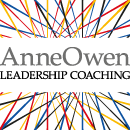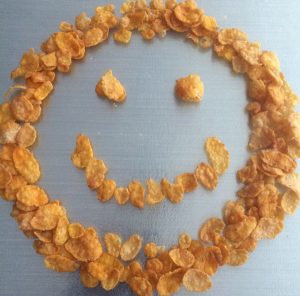Every now and again, instead of rolling my eyes at my son’s fascination with jungle and austerity-based reality TV shows, I sit on the sofa and join in. There’s a Bear Grylls survival series on at the moment, where a group of women and a group of men were dropped, separately and unknown to each other, onto a Pacific island. Inevitably they run into each other and decide to join forces and equally inevitably, one of the emergent group themes is gender-based, role separation. The men fall into tool-using, risk-taking and hunter/protector roles while the women end up cleaning the camp. The producers have broadcast a lot of the conversation about this, particularly from the women. I suppose it’s possible that the men talk about it less. A tiny young woman, a Londoner in her twenties who works as a bartender and still shares a bedroom with her sister, discovers a reserve of inner strength after getting angry about both the emerging patterns of behaviour and her wimpy part in it. This drives her to set traps for some wild turkeys, catching and killing one and returning heroically to camp, where her triumph is celebrated noisily and genuinely by the rest of the camp. It’s great TV because it leaves you thoughtful.
All this takes place in a jungle where structure has to be created by the people who are there and it’s amazingly organised: no Piggy or conch shell in sight, despite the occasional scratchiness. Nevertheless, social role stereotypes quickly emerged. It links to my experience of the world of work in that one noteworthy phenomenon is the gender difference in having the inner confidence it takes to say ‘I can do that just as well as you can’. On the island this manifested itself in the young woman turning her frustration about being the camp cleaner into action, working out that a trap is more likely to result in catching a turkey than the men’s tactics: crashing through the undergrowth, machetes in hand, hacking at branches so they can clear the route to sneaking up on said bird. At work this translates into putting one’s had up to say ‘I can do that new project’ or ‘I’d like that role’ or even just writing that application for a job. There is plenty of evidence that for many reasons, women self-screen, do not volunteer for projects so easily, do not apply for a job openly advertised if it lists skills they currently don’t have, whereas men will more readily do all of those things. They don’t even see it as risky. Even otherwise utterly confident Professors who are female, find themselves, after the annual salary negotiation with the vice-Chancellor, having asked for and received less than equivalent male Professors. The reasons for all that aren’t the point here and this isn’t about attributing blame, I am describing the current reality of the world of work for many of us.
The thing is, I know all of this, about the self-undermining habits many of us have, not always women. I spend a lot of time coaching women to understand and overcome the horrid tangle of personal and institutional barriers. And yet, I don’t always take my own counsel. It’s like physical fitness, and specifically road running, which I try to do at least once a week. The run is wonderful once it’s over but getting out of the door is often far harder to achieve than it should be, especially when I am a little out of the habit. I know that exercise is good for me and I know what it takes to get fit, but childishly I just want to BE fit rather than do painful daily exercise. Even Olympians sometimes feel this. Apparently. And as with fitness, we want to BE confident rather than go through the rigorous self-training it takes to develop a confident mind-set.
So here’s the thing. I genuinely believe that building one’s EQ, one of which is self-confidence, is a fundamental part of being good at work. Like learning to listen to those we disagree with, it’s a social obligation as essential as basic personal hygiene. It’s a skill that’s vital for mental and physical well-being and we aren’t doing ourselves or our co-workers justice if we don’t develop the habit. There are plenty of ways to actively develop our own confidence which anyone can find with the tiniest bit of web research… I’ve listed, below, various ones I have tried (good to vary, like exercise). But of course the thing that’s hard is putting the activity in its proper place. It’s as vital as breakfast. Derek Walcott (an islander, as it happens) wrote in his wonderful poem, ‘Life after life’: ‘…Feast on your life’. I haven’t a hope of doing that if I haven’t worked out what to do at breakfast-time.
Eat my cornflakes, brush my teeth, build my confidence. Five minutes. Every day. Every single precious day.
PS…and here’s the list of various routes to building confidence:
- A mindfulness practice
- Paying attention to positive feedback rather than just critical feedback
- Focusing our attention on what we have done well rather than done badly
- Setting sensible goals rather than ridiculous ones
- Spending our time with people who make us feel good about ourselves
- Not comparing ourselves to others
- Finding role models who are similar enough to us so that we actually believe we could inch towards being like them
- Having a learning mind-set rather than a protective mind-set
- Noticing what makes us defensive
- Testing reality by asking for feedback
- Not expecting ourselves to be perfect
- Making sure our bodies are upright rather than slouched
- Looking after ourselves physically…
…and a whole lot more.




Love this, Annie. Thank you
Thanks Oon. Sometimes I worry that my posts are a little too personal and disclosing but it seems a pointless worry in that I’m not sure I can or should change some of my essence! Hope all well with you.